Play is a natural and instinctive activity that is deeply rooted in human nature. It is not merely a means of passing time; rather, it is a powerful tool for learning and development, especially during early childhood. Research shows the benefits of play based learning far exceeds other forms of education.
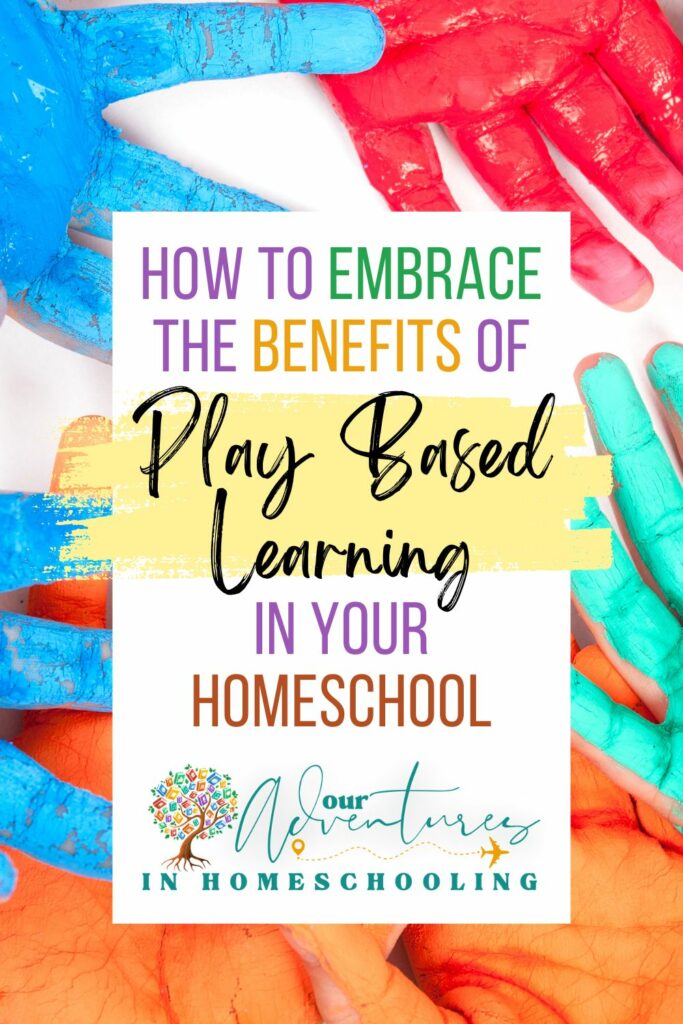



Children have an innate curiosity and boundless energy that is best harnessed through play. In this blog post, we will delve into the benefits of play based learning in early childhood education, focusing on various play-based activities such as messy play, physical play, loose parts play, outdoor play, and game play.
Let’s explore many of the benefits of play based learning you can utilize in your homeschooling journey.
Importance of Messy Play
Messy play may seem chaotic or unstructured at first glance, but it plays a crucial role in a child’s early learning journey. Engaging in messy play activities such as finger painting, water play, or playing with sand stimulates a child’s senses, encourages exploration, and enhances fine motor skills.
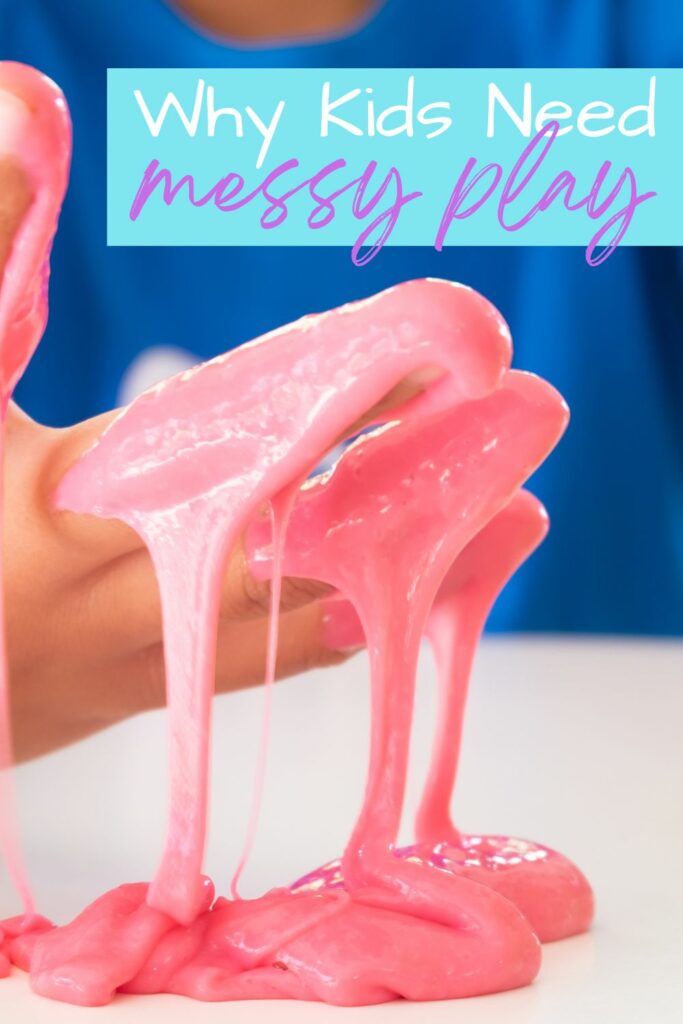



When children dive into a messy play experience, they are exposed to various textures, colors, and consistencies, which helps them build neural connections and develop their creativity.
Messy play also promotes problem-solving skills as children learn to adapt and experiment with materials, discovering cause and effect relationships.
It’s pretty easy to incorporate the benefits of messy play in your homeschool with sensory bins, play-doh, water tables, or even supplies from your kitchen like rice and dry beans.
My kids LOVED it when I would fill a bowl with dry rice, dry noodles, and dry beans. Then I would give them a stack of measuring cups, spoons, and funnels. They would keep themselves entertained for what felt like hours!
You can also make edible finger paint using Cool Whip and some food coloring mixed in. Keep it simple and you’ll be surprised how much fun they have!
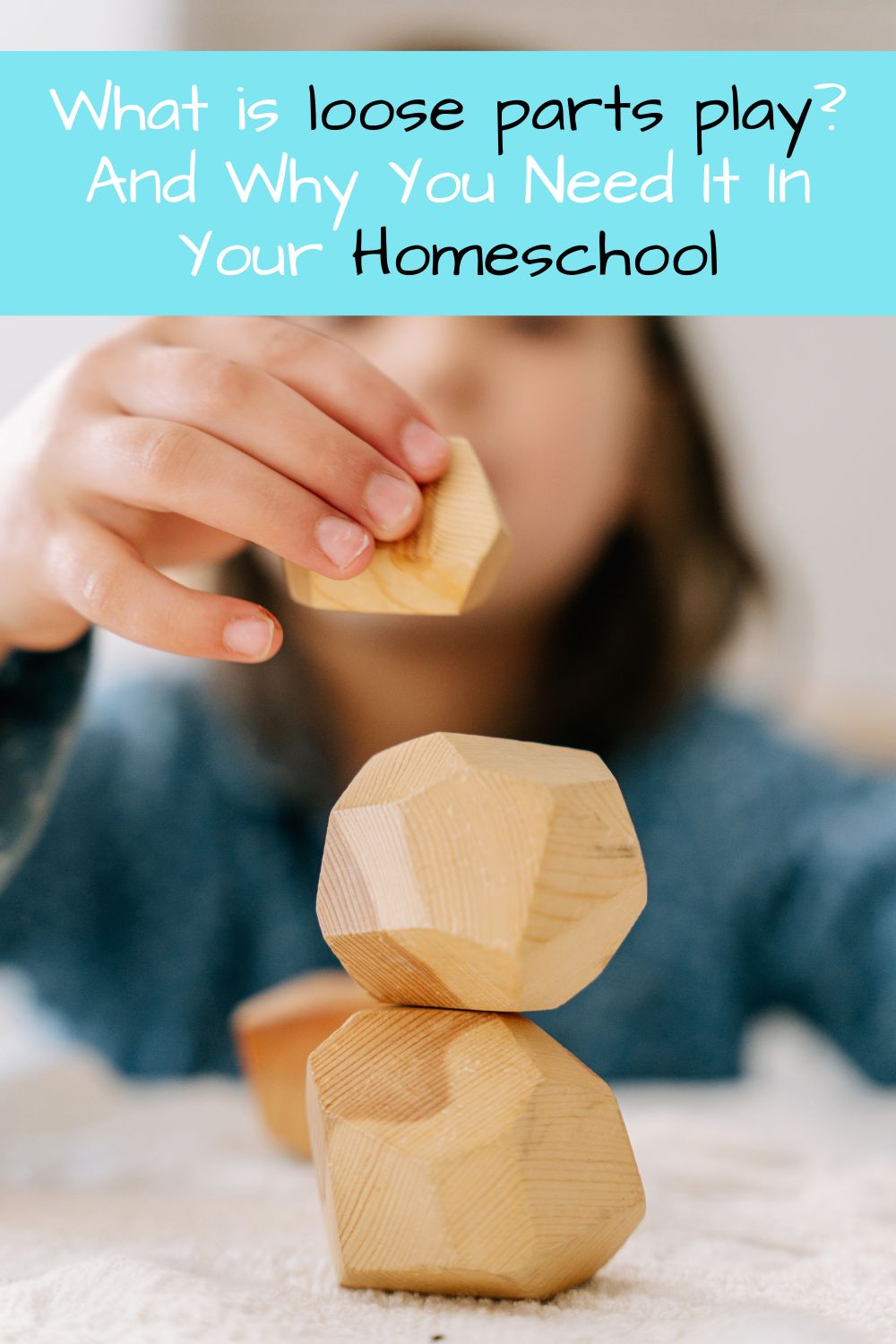



Benefits of Play Based Learning with Loose Parts Play
Loose parts play refers to the use of open-ended materials or objects that can be manipulated, combined, and transformed in multiple ways. Examples of loose parts include blocks, sticks, fabric scraps, natural materials like pinecones, and various household items.
This type of play encourages imagination, problem-solving, critical thinking, and creativity. By providing children with loose parts, they are empowered to construct their own play environments, fostering independence and decision-making skills.
The open-ended nature of loose parts play nurtures divergent thinking and promotes a growth mindset, enabling children to see possibilities and explore new ideas.
Incorporating the benefits of loose parts play can be as simple or as extravagant as you like. We’ve made huge blanket forts in the living room, but we’ve also kept it simple by constructing bridges using popsicle sticks.
Benefits of Outdoor Play
In today’s digital age, where screens dominate many aspects of children’s lives, the benefits of outdoor play holds tremendous significance. Outdoor play allows children to connect with nature, breathe fresh air, and engage in physical activities.




Nature provides a rich sensory experience with its sights, sounds, and textures, stimulating children’s senses and promoting cognitive development. Outdoor play encourages risk-taking, problem-solving, and resilience as children navigate uneven terrains, climb trees, or build forts.
It also fosters social skills, cooperation, and teamwork as children interact with their peers in unstructured environments, promoting creativity and imaginative play.
Find a nature preserve near you and see if they offer classes or have a children’s garden. We have several children’s gardens near us that make incorporating the benefits of outdoor play fun and easy. If you don’t have a children’s garden, find a creek or lake where kids can explore. You’ll be surprised at all they can find!
Importance of Game Play
Game play encompasses a wide range of structured activities, including board games, pretend play, and interactive video games. There’s even an entire homeschool philosophy based on the importance of game play for learning…learn more about gameschooling.
Check out these Nintendo Switch Educational Games
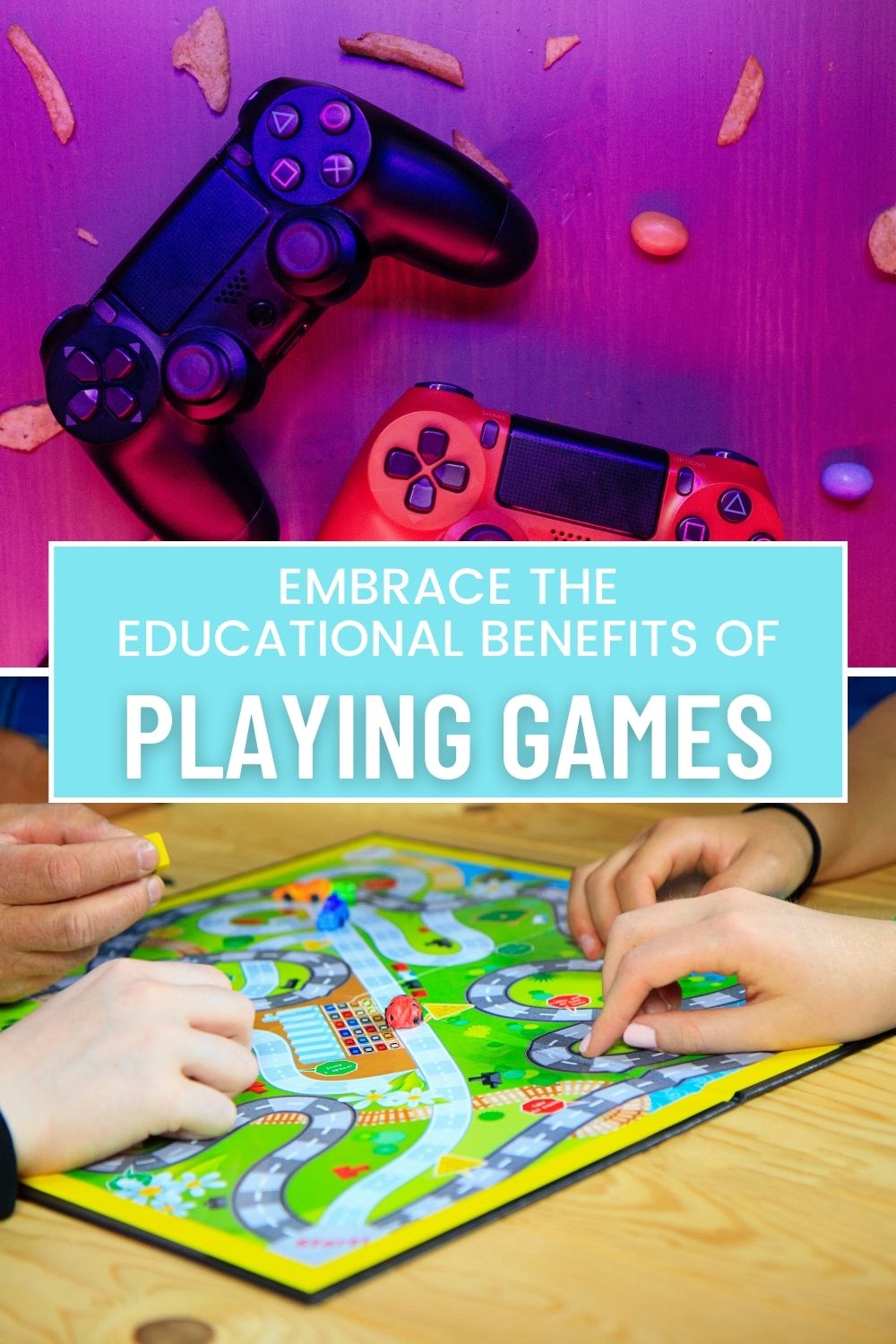



Games provide opportunities for children to practice essential skills such as turn-taking, problem-solving, strategizing, and critical thinking. They encourage the development of memory, concentration, and focus.
Furthermore, game play fosters social skills and empathy as children learn to cooperate, negotiate, and respect rules. Educational games can be particularly beneficial, as they combine learning objectives with fun, making the learning process engaging and enjoyable for children.
Build It and They Will Come- Unlocking the Power of Fun
I started a homeschool game day at our local park and it grew fast! All I did was create a Facebook event for homeschoolers in our surrounding area to meet at a picnic shelter and bring their favorite board game.
The first week only 1 other family showed up, but within a month we had over 10 families. Now that we’re a year into it, we regularly have 15-20 families attend regularly and another 20 or so that join in when their schedule allows.
Benefits of Physical Play
Physical play, also known as active play or rough-and-tumble play, involves movement and exertion of energy. It encompasses activities like running, jumping, climbing, and dancing.
Physical play is vital for the development of gross motor skills, coordination, balance, and strength. When children engage in physical play, they learn to control their bodies, spatial awareness, and develop self-confidence.
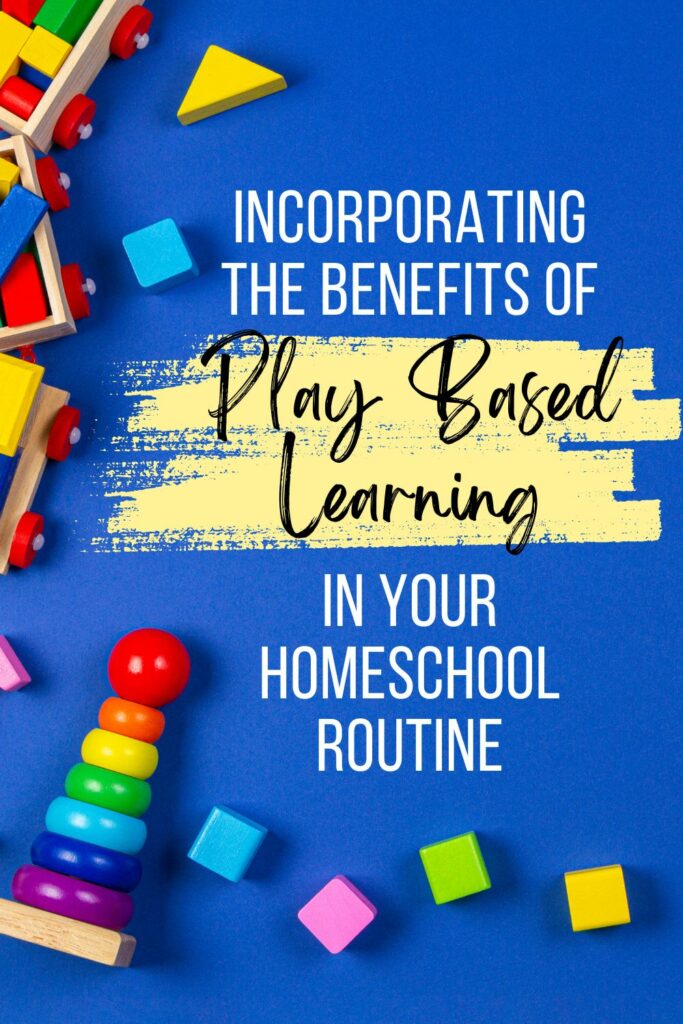



Additionally, physical play aids in the release of endorphins, promoting emotional well-being and reducing stress levels.
Incorporate the benefits of physical play into your homeschool routine by going to the park regularly. Many gymnasiums and karate studios offer homeschool classes…you just need to call around and ask.
If they don’t currently offer something to homeschoolers in your area, ask if they would be interested in starting something. I’ve learned through the years that it never hurts to ask, and just as above with the game day… if you build it, they will come.
Another homeschool mom in our area started a Nerf Wars day which is perfect for incorporating the benefits of physical play. Her kids wanted friends to play Nerf Wars with so she started creating an event on Facebook. After just a few months, her event averages 40 kids every month!
Incorporate the Benefits of Play Based Learning In Your Homeschool
In early childhood education, the benefits of play based learning are vital components that support a child’s holistic development.
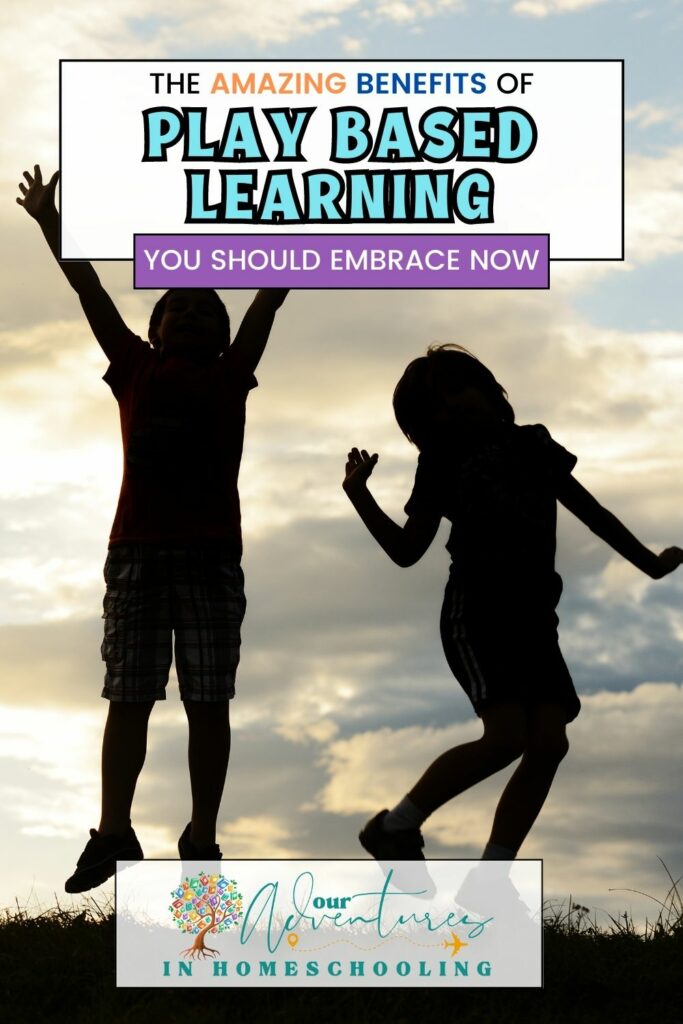



Messy play encourages sensory exploration and creativity, physical play enhances gross motor skills and emotional well-being, loose parts play stimulates imagination and problem-solving, outdoor play connects children with nature and fosters social skills, and game play combines learning with fun and social interaction.
As parents, educators, and society as a whole, it is our responsibility to create an environment that values and promotes play, recognizing its immense importance in shaping the future of our children. By unlocking the power of play, we unlock the full potential of learning in early childhood.
So, let’s allow children the freedom to play, explore, and learn in ways that ignite their curiosity and nurture their growth.

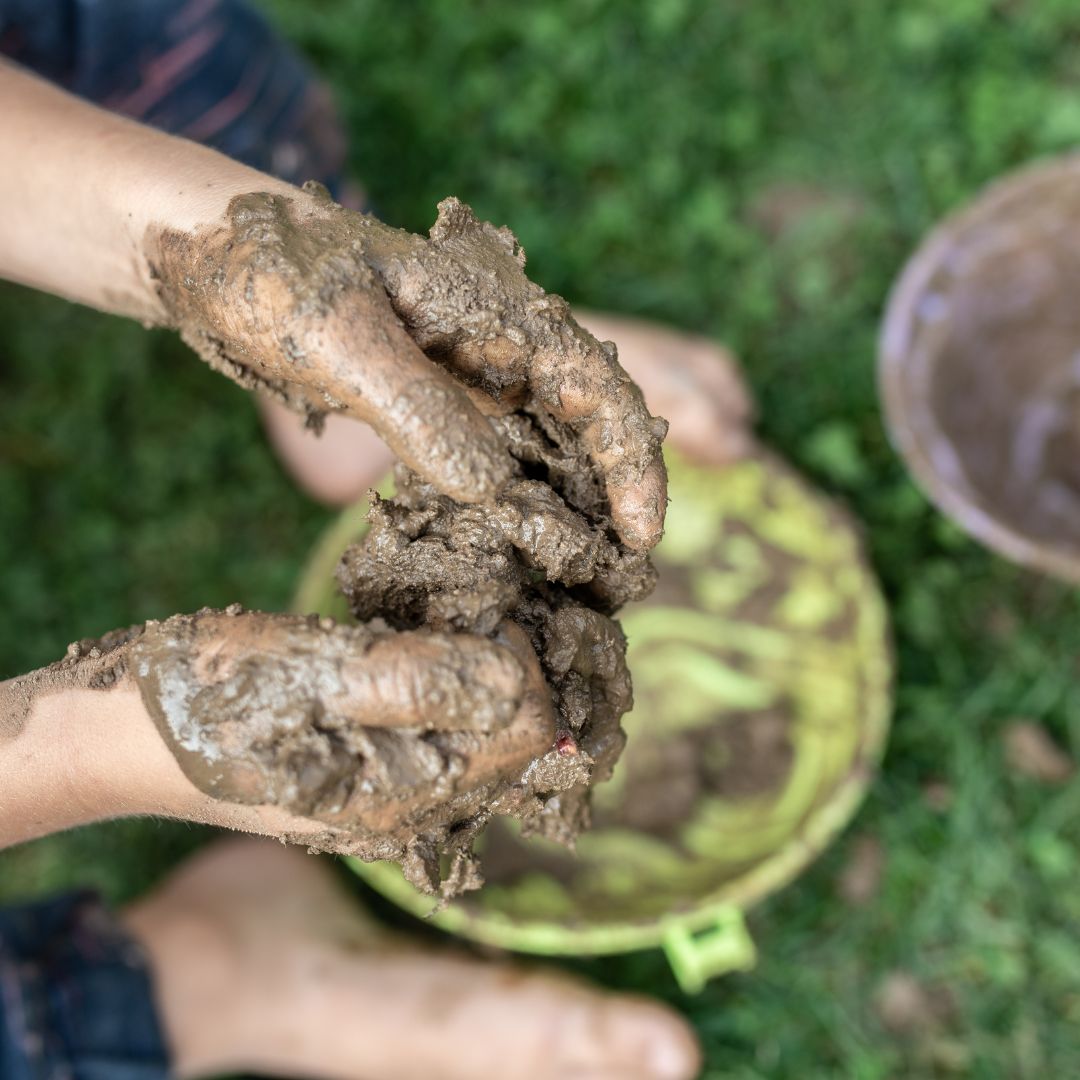
Homeschooling Kindergarten Schedule: A Comprehensive Guide
Wednesday 28th of June 2023
[…] Children learn best through play! When children engage in play, they are not merely having fun; they are actively exploring, experimenting, and acquiring vital skills and knowledge. Make sure you read the Benefits of Play Based Learning! […]